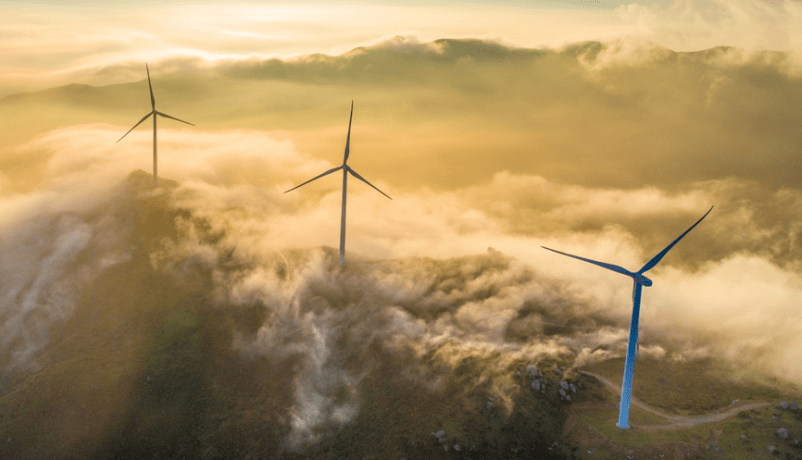Breadcrumb
Global investors urge EU to “get the fundamentals right” in response to Inflation Reduction Act
Latest major GIIA EU policy report emphasises need for permitting reform, reliable regulation and strong project pipelines

- Fresh study follows Commission President Ursula von der Leyen Davos pledge “to get ahead of the competition” as US green subsidies gather momentum
- GIIA recommends reassessment of measures that deter clean investment, such as revenue cap for renewable energy producers, to accompany fresh initiatives, warning against a short-termist approach to electricity market redesign
- Encourages acceleration of permit reform and simplification of funding streams in context of pledge to launch new fund
GIIA is today calling for “speed and simplicity” in delivery of plans announced at last week’s World Economic Forum to make “Europe more investment and innovation-friendly”.
Its new ‘Powering the Energy Transition’ report follows sentiment studies showing Europe significantly trailing the US as a desirable investment destination among global pension, sovereign wealth and private funds.
The group welcomes von der Leyen’s commitments but stresses that fresh action must go hand in hand with reform of existing measures that disincentivise clean investment, not least a revenue cap on renewable, so-called ‘inframarginal’, electricity producers.
It warns that the EU’s electricity market redesign risks compounding the effect of such knee jerk measures, flagging that plans are “being prepared in exceptionally short time and without proper stakeholder consultations or impact assessment”.
GIIA welcomed publication last month of plans to accelerate EU permitting processes for sustainable projects, making the case for more radical reform as a new Net Zero Act is taken forward, and highlighting the risk of creating ‘no-go’ investment areas and excessive bureaucracy as part of a ‘go-to’ regions approach.
The group stresses the need for greater simplification and accessibility of funding streams aimed at facilitating the net zero transition in the context of von der Leyen’s commitment to “prepare a European sovereignty fund as part of the mid-term review of the budget this year.”
The study highlights the vital role of such funding streams in crowding-in additional investment in renewable capacity, outlining how the European Investment Bank (EIB)’s €30bn worth of RePowerEU loans and equity financing are set to unlock more than €100bn in total investment over the coming years.
The group warns that complexity and instability across CEF, RRF, InvestEU, and Cohesion funding initiatives are, however, hampering their effectiveness, and calls for creation of support guidelines at member state level.
GIIA also points to the need for greater utilisation of improved power purchase agreements (PPAs) to provide investors with certain, stable frameworks for projects, with rules harmonised across member states.
Greater dialogue between industry leaders and policymakers through initiatives such as the European Solar PV Industry Alliance will, the group suggests, pave the way for increased sustainable investment across the bloc in the years to 2030.
Acknowledging the role of private investors in achieving sustainability goals, the European Commission forecasts that €210bn of investment will be needed to keep RePowerEU targets on track in the years to 2027.
Acting GIIA CEO Jon Phillips said: “It’s encouraging to see the EU pledge action around energy incentives as the worldwide race to attract sustainable investment accelerates.
“Policymakers should focus on getting the fundamentals right: promoting stable legislative frameworks that provide investors with certainty and fair tax systems that incentivise clean investment.
“There are areas where urgent reform is needed in this regard, not least around the revenue cap on renewable electricity producers. Speed and simplicity of response, especially as it pertains to permitting reform and new funding streams, is a must.
“It was good to hear Ursula Von der Leyen stress aspiration to mutually reinforcing investment incentives across markets last week – global collaboration between nations and investors will be central to the world’s transition to net zero.”
Natalie Pettinger-Kearney, Head of EU Regulatory and Public Affairs Practice at Freshfields Bruckhaus Deringer, who supported publication of the report, said: “The EU’s targets for the clean energy transition have been further reinforced in light of recent crises.
“This makes close cooperation between public and private investors more important than ever to ensure the EU has the necessary infrastructure in place to reach its ambitious climate and energy objectives.
“Especially given the recent influx of regulation, it is essential that EU policymakers keep in mind the essential role of private investments and deliver a clear, reliable and stable regulatory framework that will in turn facilitate the rollout of clean energy infrastructure, boosting the uptake of renewables.”